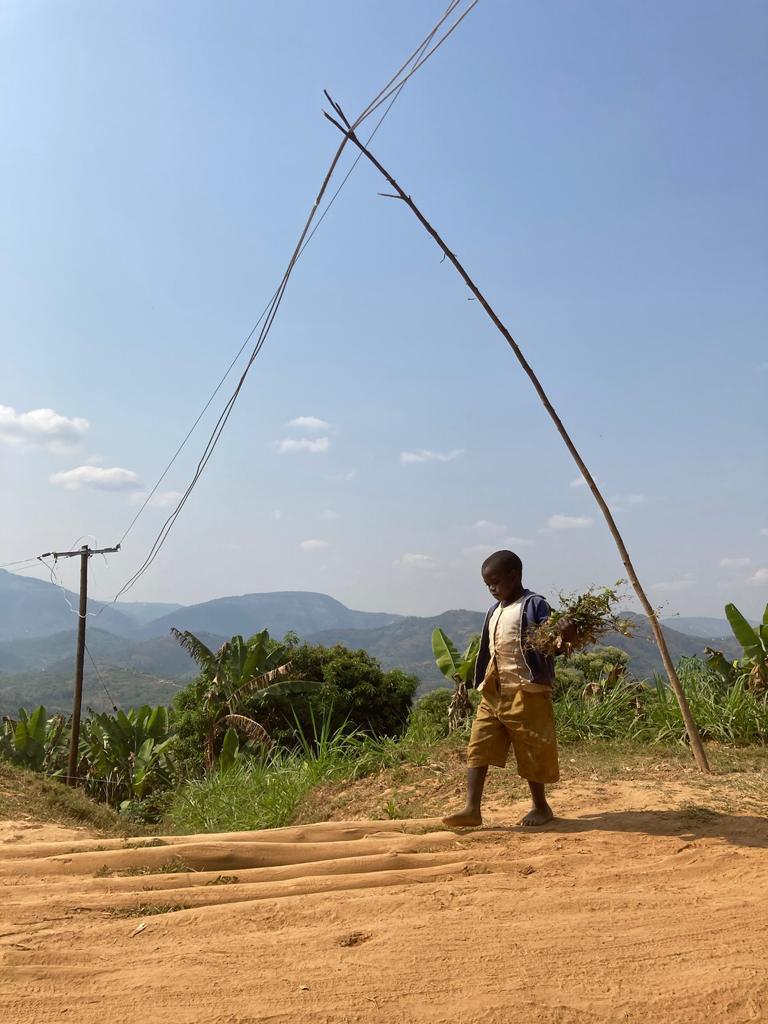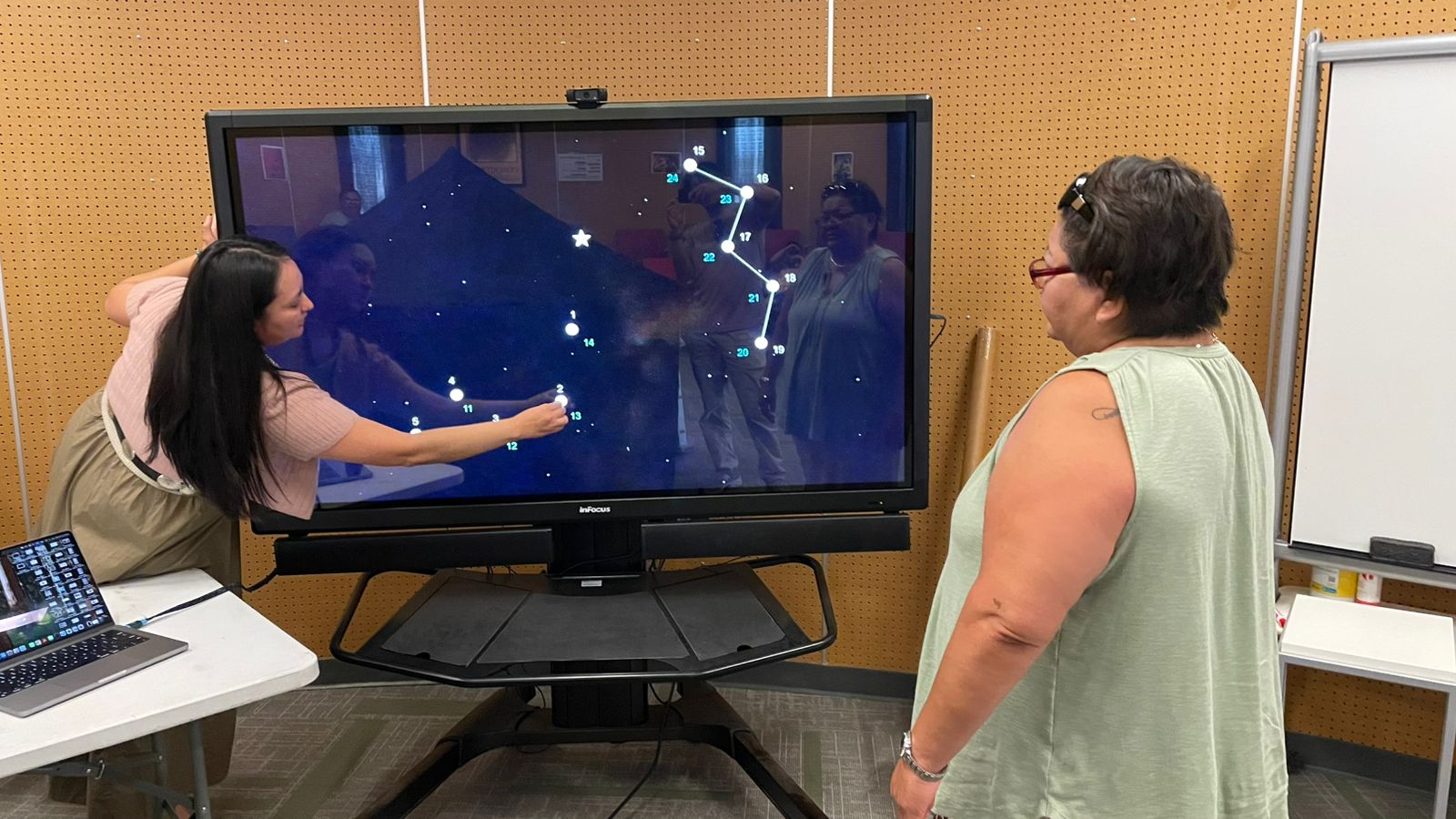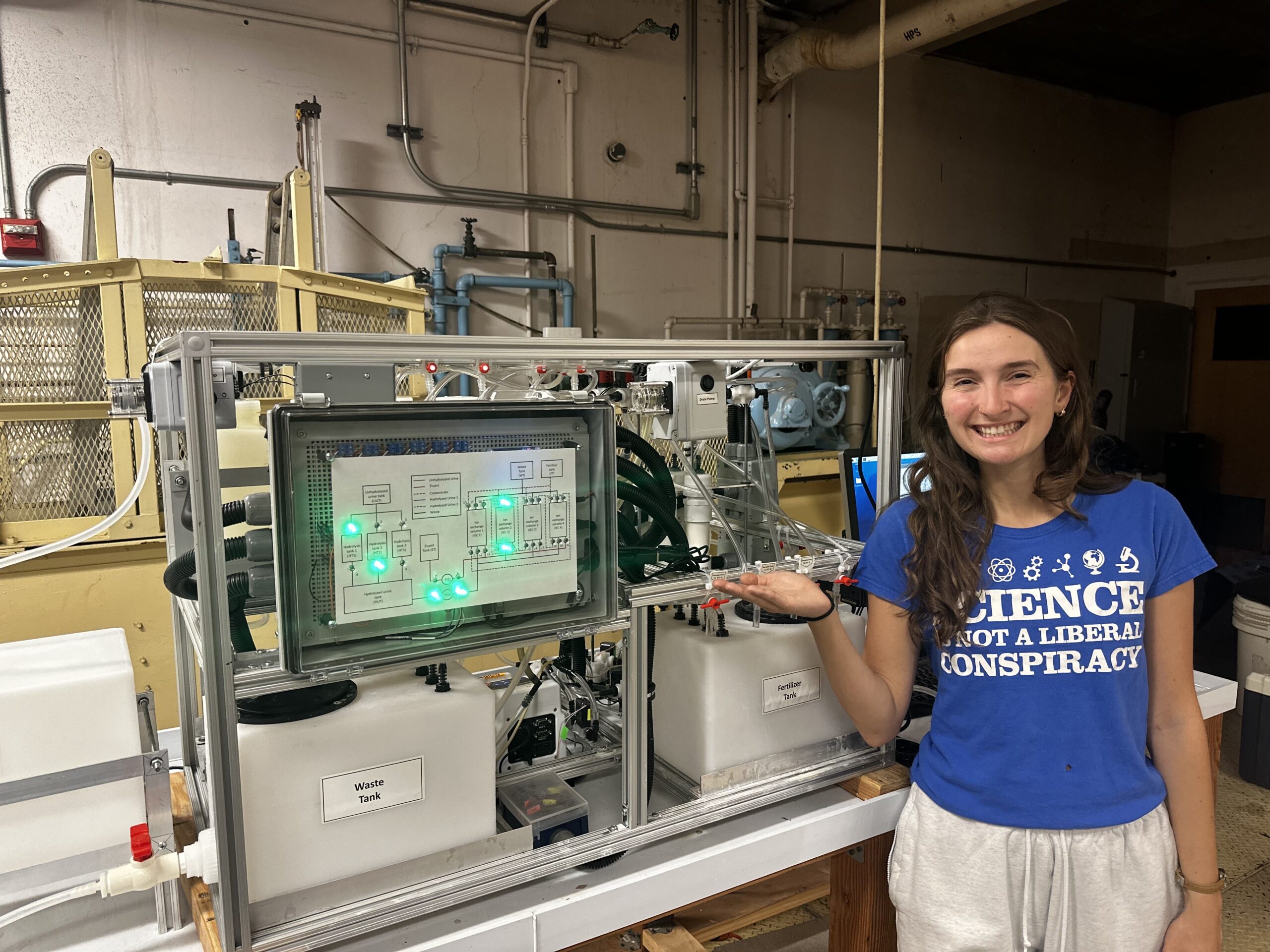Development Engineering is a field of research and practice that combines the principles of engineering with economics, human-centered design, entrepreneurship, natural resources, and social science to create technological interventions in accordance with and for individuals living in low-resource settings. It’s a technical field, one often rendered in blueprints, lines of code, and physical devices.
But depicting DevEng to lay audiences is vital not just to raising the field’s academic profile but to growing the capacity of a discipline that tangibly improves lives as well as to highlight the richness and complexity of the communities DevEng aims to serve.
Each summer, students in UC Berkeley’s Master of Development Engineering program and the PhD designated emphasis in DevEng implement DevEng interventions close to home and far away, documenting their work and their environment as they go. This year’s DevEng Photography Contest highlights the best of this summer’s photos and videos, from the sometimes-precarious state of electrical power in rural places to novel technologies for delivering medicines and medical supplies. (Coincidentally, the three winners were captured in the same country.) Jacob Seigel Brielle and Isaac Seigel-Boettner, the talented Cal-alum duo behind Pedal Born Pictures, joined DevEng staff in judging this year’s submissions.
1st place
“The fragility of rural power”
Samuel Miles, PhD student, Energy & Resource Group; DevEng designated emphasis
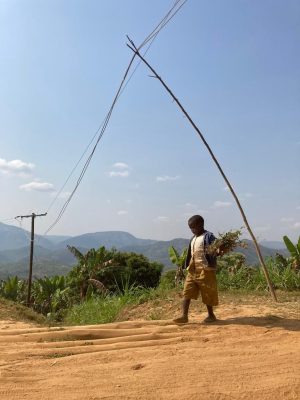
“This is a picture of a young boy carrying out his chores in rural Rwanda,” says Miles. “The background shows rural infrastructure — in this case, a sagging power line held up by a local tree. It encapsulates the opportunities and challenges of modernity — the possibility that the boy grows up benefiting from electricity, but also the dangers poor planning represents to safety.”
Judges commended the great intersecting lines in the composition and how the photo’s symbolism deepens the more one dives into the image.
2nd place
“Zipline Drone Landing”
Rachel Dersch, Master of Development Engineering student
Dersch’s video depicts a medical delivery drone landing. The company behind it, Zipline, is a Silicon Valley start-up operating in various African countries, including Rwanda. “They make deliveries constantly to all the hospitals in Rwanda that contain blood, medicines, and supplies,” says Dersch. The company provides “quality employment” for their staff in Muhanga, Rwanda, she adds, and is being considered for her research team’s sites for solar power and water filtration units, since they require a landing pad for deliveries. “The drones are a really cool adaptation for developing countries when the road infrastructure makes time sensitive deliveries like blood difficult to accommodate,” Dersch says.
Judges appreciated the depiction of a fascinating new technology being used for good — and the importance in DevEng of testing tech first.
3rd place
“Rural health clinic energy transitions in Rwanda”
Rachel Dersch, Master of Development Engineering student
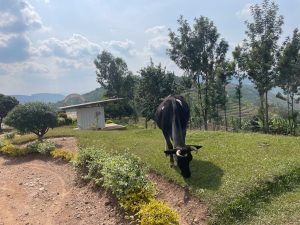
“I like this photo because it showcases the complexity of working in rural locations where cows are grazing on hospital grounds next to new technology implementations,” Dersch says. “This photo was taken in a very remote location in the ‘Thousand Hills’ of Rwanda, a gorgeous place. We were at the location conducting qualitative interviews on the energy transition at the health clinic and picking up power monitoring sensors.”
Judges recognized this photo for the deeper story and symbolism behind it. Plus, “these sorts of juxtapositions help explain more of the why behind DevEng,” Seigel Brielle says.

